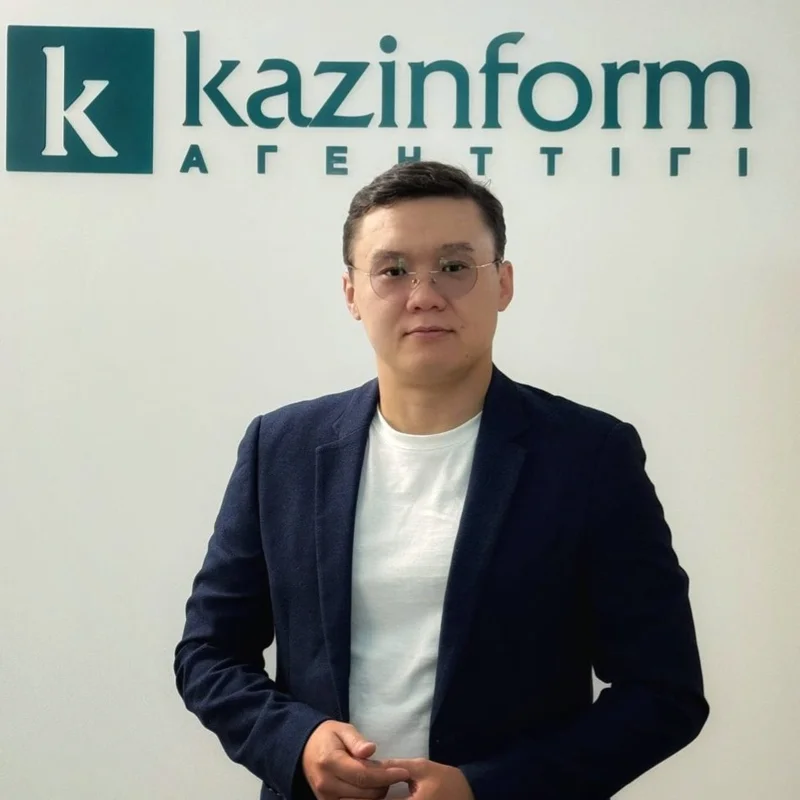France sees Kazakhstan as a key partner in Central Asia’s economic diversification – Laurent Saint-Martin
Laurent Saint-Martin, Minister Delegate for Foreign Trade and French Nationals Abroad, spoke with a correspondent of Kazinform News Agency during his visit to Kazakhstan. In this exclusive interview, he discussed the current state and future priorities of French-Kazakh economic cooperation, the role of France in Central Asia, support for French businesses abroad, and the broader geopolitical and trade challenges facing Europe.
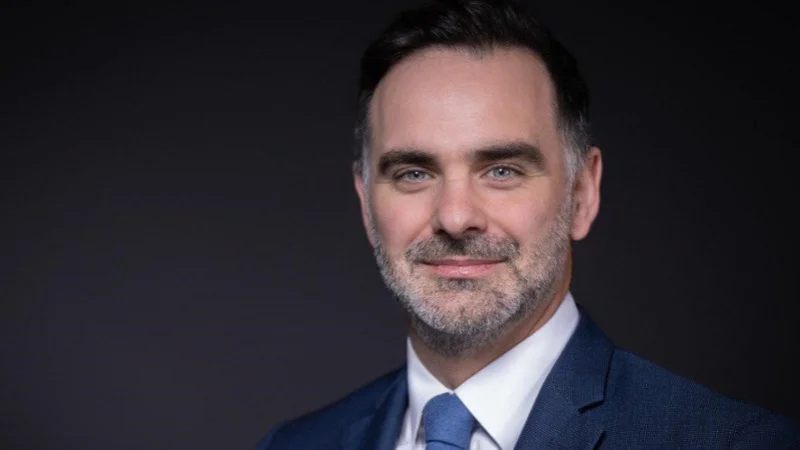
- Mr. Saint-Martin, welcome to Kazakhstan and to Kazinform News Agency. We appreciate your time. Let’s begin with the development of economic ties between France and Kazakhstan. What are the current priorities in economic and budgetary cooperation?
- Thank you very much for having me. We have an exceptional relationship between France and Kazakhstan. Our two presidents know each other well and have met annually since 2022. President Tokayev has visited Paris twice, and President Emmanuel Macron visited Kazakhstan in 2023. When leaders share a common vision—to diversify partnerships—this creates real momentum. For France, Central Asia, and Kazakhstan in particular, are key priorities.
From a business perspective, this opens many doors. I’ve arrived with a delegation of over 50 French companies—our largest ever in Kazakhstan. We’re taking part in the Astana International Forum, and today is especially important as it marks 'French Day.' Alongside the Prime Minister, we welcomed French companies that are eager to invest here.
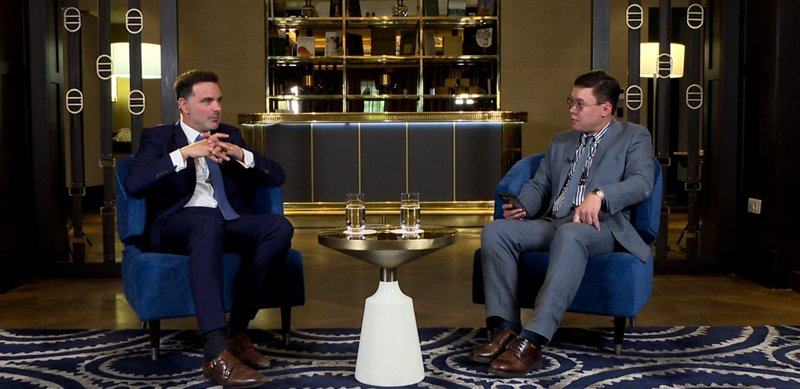
- What are your expectations for the Astana International Forum? How significant is it for the international business community?
- First, I’d like to congratulate Kazakhstan. This forum has quickly become a recognized and impactful global business platform. For French companies, attending the Astana Forum is now essential if they want to succeed in this region.
It’s not just about Kazakhstan; it’s about all of Central Asia—and beyond. We’re exploring opportunities in sectors like transportation, industry, energy, mining, and healthcare. The forum brings strategic topics to the table and encourages partnerships. For us, attending is a given.
- How does France view Kazakhstan’s economic potential, especially in terms of diversifying critical resource supplies like rare earth elements?
- This is not a new concern for us. We have longstanding cooperation in Kazakhstan’s mining sector—take Orano, for example. But yes, we must deepen our collaboration on rare earths and other critical raw materials.
We’ve launched a new cooperation initiative and are investing €500,000 to support joint efforts between our national geological agencies—BRGM in France and its Kazakh counterpart. This includes training, mapping, and practical collaboration so that French companies can contribute to Kazakhstan’s resource development. It’s a matter of sovereignty, and the fact that our two nations trust each other on such a strategic issue speaks volumes.
- Is there an official French government strategy to support French businesses in Kazakhstan?
- Yes—what we call economic diplomacy. As Minister for Foreign Trade, I lead business delegations and facilitate high-level connections. We operate through MEDEF International, our business organization, and the Team France Export initiative, which includes public and private partners like Business France and the French-Kazakh Chamber of Commerce.
Together, we promote both exports and investment. It’s about selling French products—like Danone products—and about investing here, as Total has done. The goal is mutual benefit.
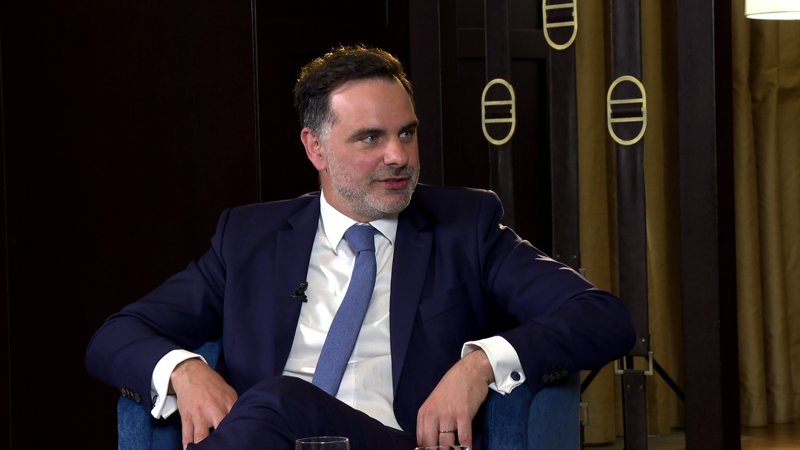
- In today’s competitive world, is France adjusting its budgetary focus to emphasize green energy and sustainable development?
- France and the EU remain fully committed to environmental goals. This is about our values, but also our economic model. When investors choose Europe, they choose the highest environmental standards. We believe economic growth and sustainability are not mutually exclusive. It’s about making the right industrial and investment decisions.
- Regarding the EU’s Global Gateway initiative, are there any concrete financial or technical cooperation projects with Kazakhstan under discussion?
- Yes, France strongly supports the Global Gateway. It’s not only about financing—it’s also about streamlining regulations and improving EU-Central Asia cooperation. This could mean reducing red tape, promoting fair trade, and fostering investment.
The world has changed, and trade dynamics are shifting. The EU must respond by creating new agreements and mechanisms. Central Asia is now one of our key priorities.
- In light of current global tensions, how is France balancing the need for social support with reducing its budget deficit?
- We need to do both—reduce our deficit and stimulate growth. The key is creating GDP growth, value, and jobs. That’s how we’ll solve the deficit issue.
Geopolitics has forced Europe to rethink its traditional markets. We’re moving away from past dependencies—on the U.S., China—and exploring new partnerships. Kazakhstan, with its young population and economic potential, fits perfectly into that strategy.
It’s not about choosing between fiscal responsibility and economic engagement. More business means more growth—and that helps reduce the deficit.
- What is your view on the new tariffs introduced by the Trump administration? What are the prospects for resolving the situation?
- Frankly, I believe this is the wrong answer to a real issue. A trade war would hurt everyone—especially the U.S., due to potential recession and inflation. We need negotiations, not escalation.
France supports the European Commission’s efforts to find a balanced solution before the July deadline. We want a deal that protects industries on both sides and avoids worsening inflation. The EU is strong—we have leverage if needed—but our goal is a positive agenda with the U.S. and the world. History shows that removing trade barriers creates value and jobs.
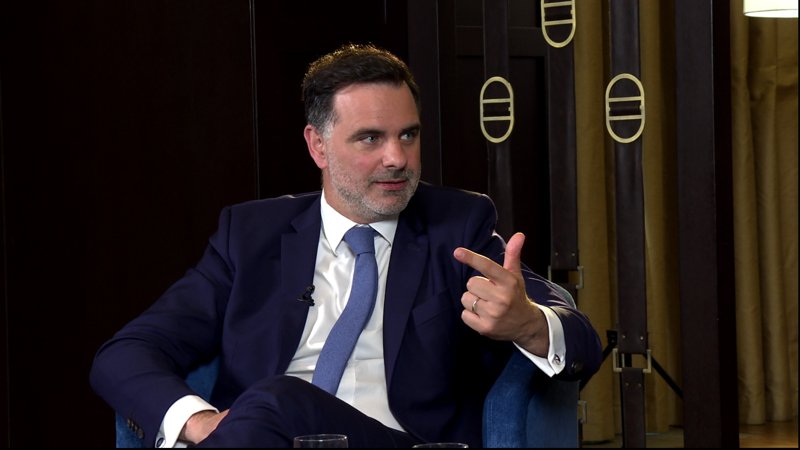
- Turning back to domestic issues: Following the recent pension reform protests in France, has your approach to communicating budget reforms changed?
- The pension reform passed in 2023 through democratic processes. People protested—that’s part of our democratic culture—but the National Assembly voted, and the law was enacted.
Why did we need the reform? To preserve our unique welfare system. As a former MP, I know that many in France understand the need for reform to protect our social model. It’s not easy, but it’s necessary.
- Finally, is there anything else you would like to share before we close?
- Just to say how impressed I am by the positive energy in your country. Today, we celebrated the groundbreaking of the future French International High School in Astana. From kindergarten to high school, it will offer a French baccalaureate.
This project symbolizes our deepening ties and shared future. Education is about youth, values, and long-term partnership. It’s a powerful sign of our friendship.
Earlier, it was reported that Kazakh Prime Minister Olzhas Bektenov opened the Kazakhstan–France Investment Forum, which was attended by Laurent Saint-Martin, France’s Minister Delegate for Foreign Trade and French Nationals Abroad.
Today Kazakh President Kassym-Jomart Tokayev received Laurent Saint-Martin, president of foreign affairs committee of the French National Assembly Bruno Fuchs and heads of EDF, SUEZ and Sanofi companies on the margins of the Astana International Forum.
